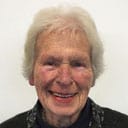Qualified interpreters are desperately needed to cope with the needs of deaf people in New Zealand.
There are only three interpreters for the deaf and the vice-president of the New Zealand Association of the Deaf, Mrs Hillary McCormack, says that is not enough.
She was in Dunedin yesterday as part of a nationwide drive promoting the needs of the deaf. She is also a national counsellor for the Disabled Persons Association, which was set up in 1981 to represent all the disabled people in New Zealand. Based in Christchurch, and deaf herself, Mrs McCormack is responsible for nationwide communications on behalf of disabled people.
“We all want the same thing — we all want interpreters.
“The Government … wants to mainstream deaf children but they have made no allowance for qualified staff who can communicate with deaf children. For adults there is no access to community education without interpreters.”
She said some months ago the Department of Social Welfare funded the employment of an expert from California to train eight people in a “pressure course” in interpretation skills. Continued funding however, provides for only three paid interpreters.
“To start off with, 20 trainees would make all the difference in the world and we could set up a venue in Auckland. But there is still no funding to employ a qualified person to train them.”
A spokesman for the Otago Deaf Society, Mr R. Dick (who is also deaf), said his group will try to make the local member of parliament and the newly appointed Minister of Social Welfare, Dr M. J. Cullen, aware of the needs of deaf people.
“In Japan there is one interpreter per 200 deaf people. In New Zealand there are three interpreters for 480,000 deaf people. There is one interpreter for the whole of the South Island — based in Christchurch.”
The deaf community will make submissions to the royal commission on Social Policy for funding for interpreters, and other suggestions for deaf people’s welfare.
One suggestion involves setting up an open house to teach living skills to deaf people after they have retired.
The community will also be calling for a rise in the level of subsidies on hearing aids.
“Hearing aids are marvellous but you still can’t get 100 percent hearing,” Mr Dick said.
“To replace a hearing aid costs anything between $300 and $600, but the government subsidy provides only $80.”
While in Dunedin Mrs McCormack has been promoting telecommunication machines — new technology designed for the deaf.
The machines are fitted to telephones and through them the deaf can call any other person with a machine. The message is typed out and transmitted over the telephone, appearing on the terminal at the other end.
The machines are widely used in Christchurch, Wellington and Auckland, but Dunedin people have not yet caught on to the idea, Mrs McCormack said: “They have gone down in price from $1,200 for the old prototypes to $600 for the new latest models. They are tremendous value in promoting English, spelling — and independence.”





















